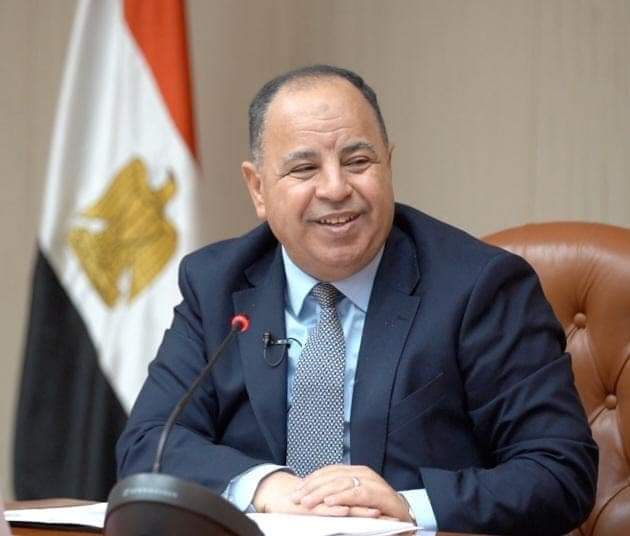Dr. Mohamed Maait, Minister of Finance, confirmed that we are keen to provide soft financing from international development partners to the private sector in Egypt, which contributes to the availability of the necessary cash liquidity to drive private investment flows in Egyptian development and economic activities, and is consistent with efforts to enable the private sector to drive the growth engine. And creating more productive job opportunities, and helping to reduce the budgetary financing burdens required to meet the development needs of citizens, and raise the level of services provided to them, pointing out that we are working through the Central Unit for Participation with the Private Sector at the Ministry of Finance, to educate Egyptian investors from the private sector pioneers about the mechanisms for benefiting from Low-cost financing opportunities for international institutions by clarifying priority sectors and projects in international financing programs, and working to raise the capabilities of private companies to benefit from financing opportunities available from multilateral development banks.
In this context, the Ministry of Finance, in cooperation with the Multilateral Cooperation Center for Development Finance of the Asian Infrastructure Investment Bank and the Egyptian Contractors Union, held a two-day workshop in Cairo, in the presence of more than 120 contracting companies, members of the Contractors Union, and representatives of development banks. International such as: “The Asian Infrastructure Investment Bank (AIIB), the African Development Bank (AFDB), the World Bank (WB), the International Finance Corporation (IFC), the Islamic Development Bank (ISDB), the European Investment Bank (EIB), the European Bank for Reconstruction and Development (EBRD), and the French Agency for Development (AFD).” Titled: “Financing Opportunities and Business Policies in the Middle East and North Africa Region”; To qualify Egyptian contractors and private companies to obtain financing from banks and international bodies, by introducing them to project financing systems, tender and contracting mechanisms, etc.
Ater Hanoura, head of the Central Unit for Participation with the Private Sector at the Ministry of Finance, said that representatives of international financing bodies operating in Egypt, Arab and African countries explained during the workshop to the targeted contractors and private companies the purchasing and contracting procedures of international development banks, the offering procedures and the mechanisms for preparing specifications and conditions sheets and rights. The bidder and how to successfully participate in projects financed by development banks in Egypt, and prepare a complete file to apply for long-term financing from development banks.Giving and how to successfully participate in projects financed by development banks in Egypt, and prepare a complete file to apply for long-term financing from development banks and green financing as well, pointing out that we aim to expand the scope of the Egyptian private sector’s participation in providing services and “P.P.P” projects in Egypt and abroad, taking Taking into account that international bodies finance projects in Egypt, Libya, Chad, Uganda, Sudan, Yemen, Saudi Arabia, Jordan and Syria, Egyptian companies can submit to these bids, which are subject to global tender and general rules.
He said that the agencies provide funding for projects, either to countries and governments, and therefore the government agencies are the ones who undertake the offering according to the rules of international donors… Or international bodies offer these projects according to the “participation with the private sector” system. There is a difference between the two paths… in the “participation system with the private sector”. The private sector: “The burden is on the investor or bidder in financing, design, construction, equipment, operation and maintenance, and the projects are ultimately transferred to the administrative body. There are contracting companies that build and receive their dues in one lump sum upon completion of operation, and therefore need financing or a short-term loan and then You want to know how to calculate bid versus financing, and this is what was explained in the workshop.
He explained that the Asian Infrastructure Investment Bank had organized the first workshop in China last year in the presence of hundreds of contractors and representatives of consulting offices and achieved positive reactions, as it addressed the rules of tender and contracting regarding the supply of goods, construction work, non-consulting services, and contracting contracts for major infrastructure projects. «EPC», consulting work, participation contracts with the private sector «P.P.P» and how to obtain financing from multilateral development banks.
He pointed out that Egypt had requested in previous meetings of the Board of Directors of the Multilateral Cooperation Center for Development Finance to repeat the workshop in Cairo and to invite all development banks operating in Egypt, and this call was accepted, especially since Egypt has many projects in the field of infrastructure, public services and utilities. The public sector is under study and proposal during the next few months and years… and a large part of it will be funded by international bodies: «The Asian Infrastructure Investment Bank (AIIB), the African Development Bank (AFDB), the World Bank (WB), the International Finance Corporation (IFC), the Islamic Development Bank (ISDB), and the European Investment Bank. EIB, the European Bank for Reconstruction and Development (EBRD), and the French Agency for Development (AFD), pointing out that this workshop aims to educate contracting companies, supply companies, legal offices, consulting offices, and financial studies offices, about the mechanisms, systems, and rules of offering and contracting with international financing bodies or multilateral development banks. Whether the project is financed by: “contracting, direct supplies, or participation with the private sector.”


